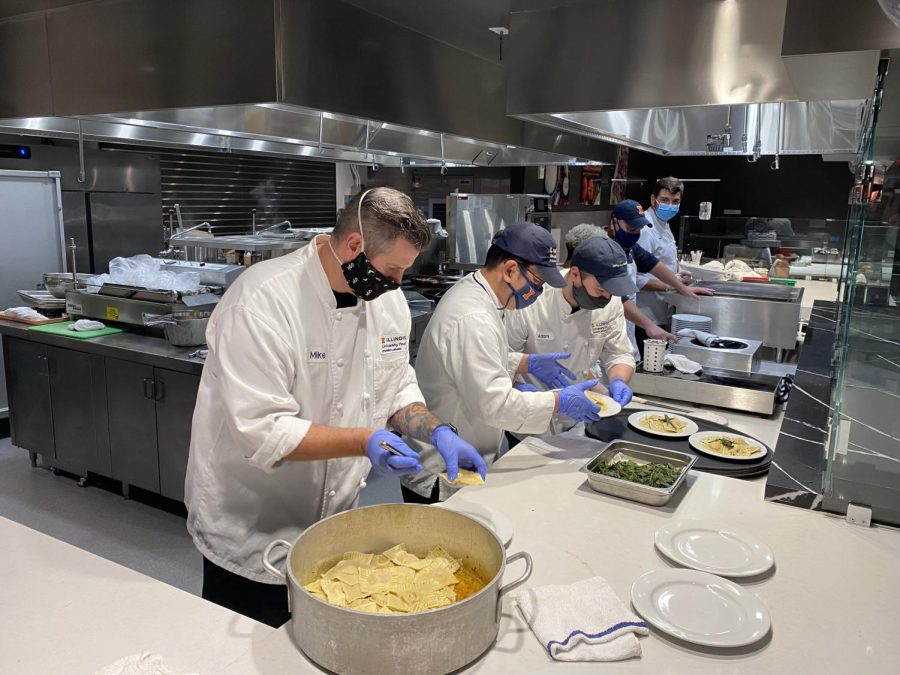Staff shortages, COVID-19 precautions impact dining halls
Photo courtesy of University Housing
Chef Mike and other University Housing workers prepare food at the ISR dining hall. The dining halls have been working efficiently even with staff shortages.
Feb 16, 2022
Dining hall staff at University Housing are attempting to work through staff shortages as a result of COVID-19.
Alma R. Sealine, director of University Housing, is responsible for all the operations, such as business services, dining, facilities, marketing, residential life, student affairs technology, housing information and management.
“We operated quarantine and isolation housing, which included not only the space but also the food for those students,” Sealine said. “And we lost a significant amount of money. So we deferred a large number of capital projects so that we could focus on the pandemic response.”
Major problems with dining hall staff at the University arose as a result of this loss of money and the COVID-19 pandemic.
“We’re trying to still respond to the Omicron variant and so it has added a layer of stress,” Sealine said. “Staff members are overwhelmed, they’re tired and so trying to find ways to keep the staff motivated and appreciated for the work that they do.”
Get The Daily Illini in your inbox!
Marcus Barnhart, a supervisor at ISR, worked at PAR for three years. He recalled that after the 2020 outbreak, self-catering services were transformed into restaurant staff serving students.
“That just changed the whole job because then we had to make sure that we were cleaning up even more,” Barnhart said. “We had to make extra, I guess, precautions. We just did our job a little bit more securely.”
Barnhart said the outbreak of the pandemic has created staff shortages in the University’s dining halls.
“I think the only one of the biggest difficulties was losing people,” Barhart said. “When somebody tests positive for COVID-19, every single person that has worked around them or with them or been around them also has been exposed.”
Before COVID-19 mealtimes, all the dining halls were open. Now, half of them are closed, which means the other dining halls are open longer to accommodate. Dining halls try to make students’ schedules work, so they can come in and eat.
“We tried to make sure everybody has a meal,” Barhart said. “So we did extend dinner and lunchtime, and we made it so during the week. Breakfast goes straight to lunch. So we’re just open for like seven or eight hours in a row so people can come in and eat when they can.”
Sealine thought staffing shortages are not just related to COVID-19 and that the University Housing has simply not been able to move forward and fill positions as quickly as they would like. Their first priority is to maintain the safety and security of work environments for their staff.
“Unfortunately, our dining staff are some of the least vaccinated staff of any of our staff members,” Sealine said. “We are actually more staffed now than we were in the fall semester. So we are hoping that we’re kind of on the other side of the staff shortage and that we will kind of get back to somewhat of what we experienced pre-pandemic.”
Despite the staff shortages and COVID-19 precautions that have made the dining hall run less efficiently, staff members such as Barnhart remain motivated and optimistic.
“We’re still going to stay open, and we’re still going to make it work because as I was told by one of my full-time co-workers, the students need to eat, people need to eat and we need to make sure that they can,” Barnhart said.






